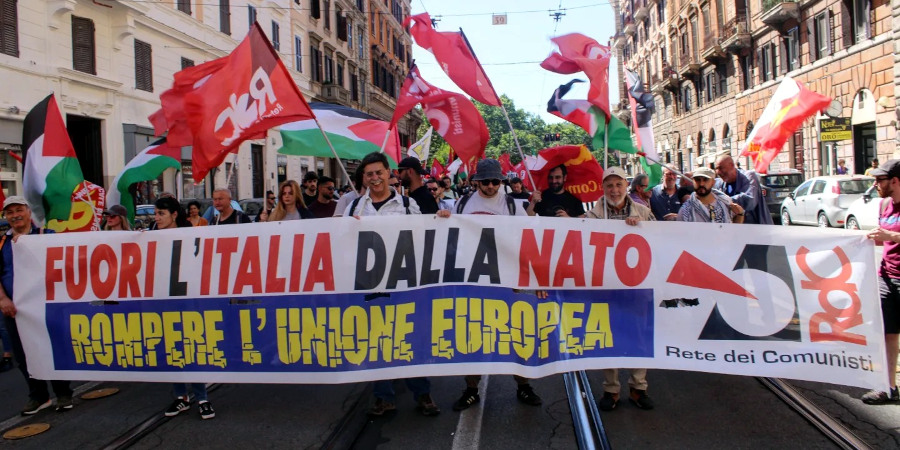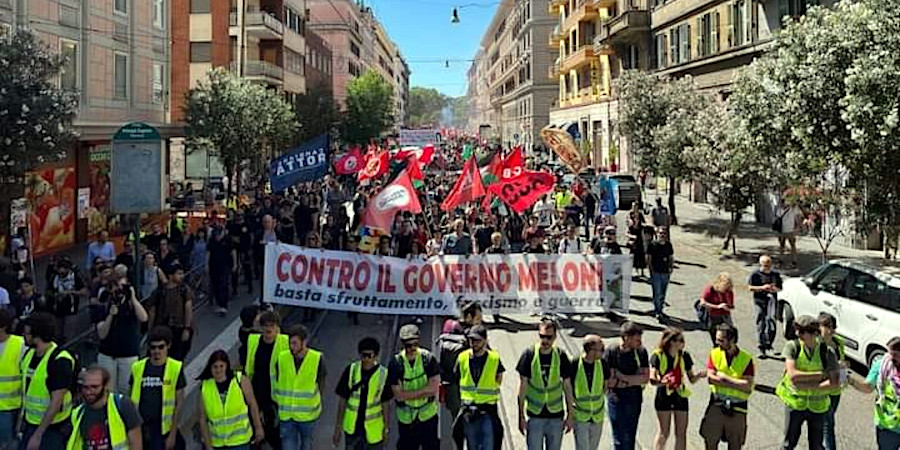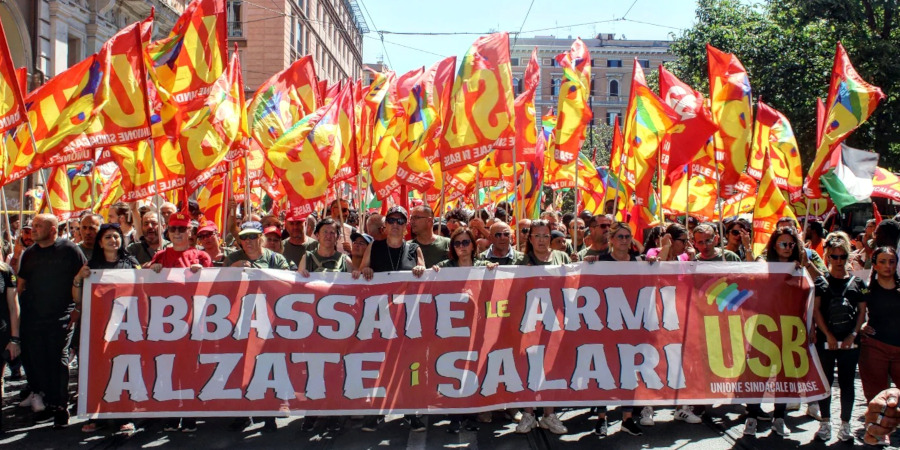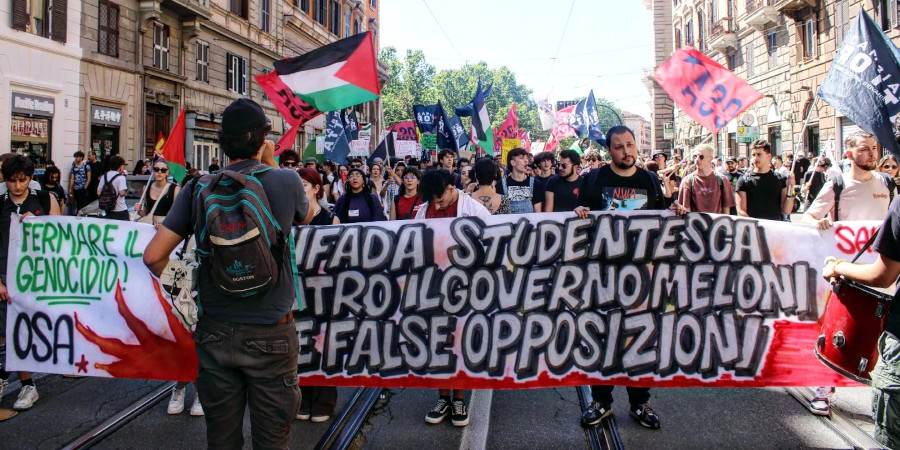| english | español | français | italiano
A first step in the construction of political and social opposition to the Meloni government
Rete dei Comunisti – in International Bulletin July 2024
A procession of at least 10,000 people against the Meloni government crossed the streets and squares of the capital, starting from Piazza Vittorio and arriving at Porta Pia. It was an important first step of coagulation at a national level of a political and social opposition against the current executive, its pro-Atlanticist war policy, its economic choices in the direction of austerity, its racist tendencies and its attacks on civil rights, especially against women.
It was a moment of advanced political synthesis, made possible by a capillary territorial construction by the organisers and a remarkable logistical effort that made it possible to reach Rome from the north and south of Italy by bus, train and car. The mobilisation of June 1st also affirms an important method of doing politics in our country in a unified manner, with steps shared since the assembly of April 20th at the L’Aquila cinema in Rome, where this demonstration was officially launched with the establishment of the promotion committee. A promoter committee that made possible the ‘belly-to-belly’ work of the following weeks, made up of territorial assemblies, leafleting, ‘attacks’ and agitation and propaganda initiatives.
We are sure that the demanding work of building the class left necessarily starts from this work that combines the identification of the enemy with a work of rooting outside, and in some ways against, the constitution of the ‘broad camp’ in the PD-M5S traction. In fact, the demonstration showed that it is not only necessary, but also possible for the radical left to occupy a political space that is not the appendix and crutch of the centre-left, giving prominence to all those class sectors that testify to a certain social vivacity. A vivacity that is beginning to erode the passivity and lethargy of recent years and that has as its main driving force the conflictual trade unionism of the Unione Sindacale di Base (USB).
Certainly, the mobilisations on the side of the Palestinian people this autumn have been an important vector for this partial reversal of the trend and a further ground for politicisation for important groups of young people who have responded positively to the call to demonstrate in Rome within an entirely ‘political’ framework and not just one of solidarity. A result that would have been impossible without the work of youth organisations (Cambiare Rotta and OSA) and university collectives (CAU) who were the vectors of this renewed youth protagonism within this context.
Two further considerations are in order. The first is related to the fact that it is areas such as the construction of the demonstration where a fruitful confrontation is possible between communist subjectivities and real experiences of the movement with a common goal practicable through mass work, which allows a projection on the political level that would otherwise be impossible to realise ‘each for himself’. The second is related to the construction of a hypothesis of political representation of the subaltern classes, of which Potere al Popolo confirms itself to be the unavoidable pivot and the most advanced point, capable of affirming its own political agenda regardless of its lack of presence in the European electoral conjuncture.
As the Rete dei Comunisti, we are more than satisfied with the political result obtained thanks to the national demonstration on June 1st, on which we have worked with perseverance, determination and passion, sparing no resources and energy. A step forward that will allow us, we are certain, to take further steps in the direction of building a political and social opposition to the Meloni government.





